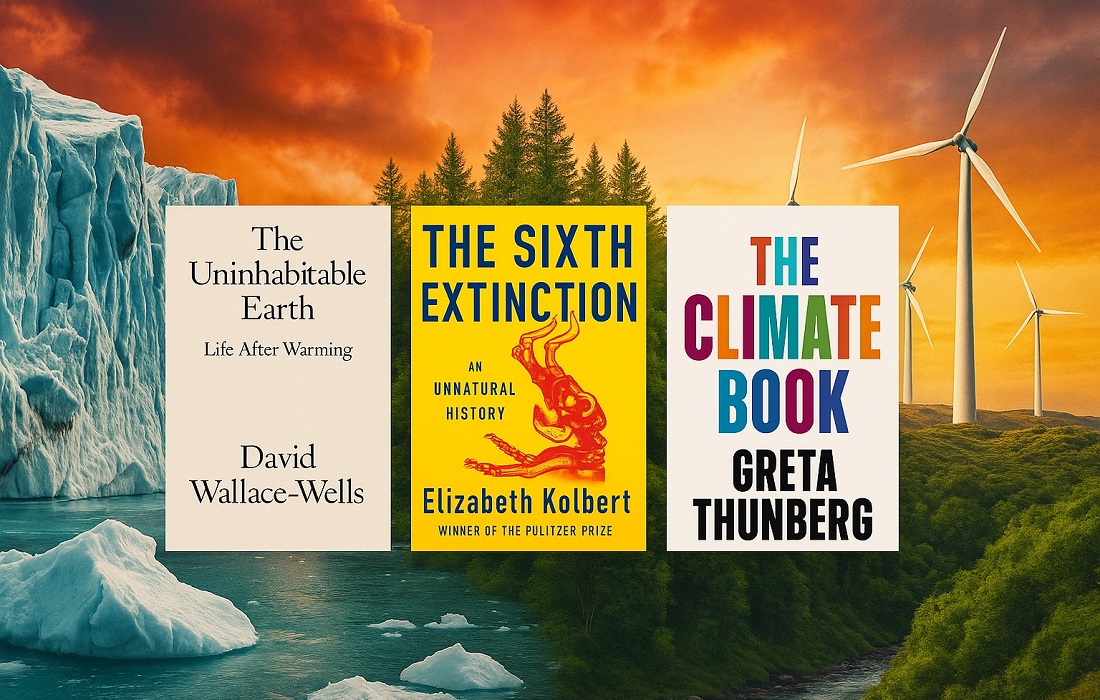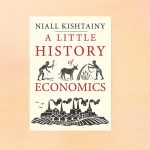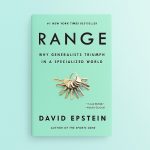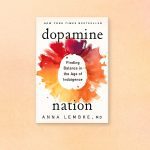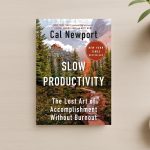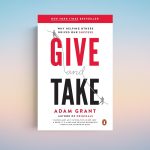Climate change is the defining challenge of our century, influencing everything from weather patterns to political stability. To grapple with its complexity, we need resources that blend rigorous science, compelling storytelling, and actionable solutions. This Top 10 Books About Climate Change pairs bestsellers from The New York Times and Amazon with influential classics that have shaped the climate conversation. Each entry features a crisp abstract, distilling the book’s essence and unique perspective. Collectively, these works offer readers a deeper understanding of the crisis, strategies for mitigation, and hopeful narratives to inspire action in the face of urgent environmental change.
Top 10 Books About Climate Change
1. The Uninhabitable Earth by David Wallace-Wells
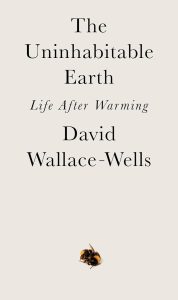
Wallace-Wells delivers a stark, data-driven portrayal of our rapidly warming planet. Drawing on the latest climate science, he outlines cascading risks-from flooded cities and collapsed agriculture to unlivable heat waves. This is not just a forecast but a vivid exploration of how climate change intersects with politics, migration, and human health. While unflinching in its depiction of worst-case scenarios, the book also emphasizes that the future is still malleable, dependent on choices we make today. Its urgency and clarity make it essential reading for understanding the scale and immediacy of the climate crisis confronting humanity in the twenty-first century.
2. The Sixth Extinction: An Unnatural History by Elizabeth Kolbert
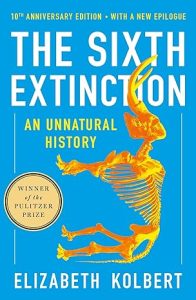
Kolbert chronicles Earth’s history of mass extinctions, focusing on the unprecedented species loss unfolding today. Through field reporting and scientific research, she connects deforestation, ocean acidification, and habitat destruction to human activity. Each chapter spotlights a species on the brink, weaving narrative with investigation. This is both a warning and an elegy-a reminder of the intricate web of life at risk. Kolbert’s storytelling personalizes complex science, making biodiversity loss tangible. The book’s central message: climate change amplifies and accelerates extinction rates, and our actions in coming decades will determine the survival of countless species sharing our fragile, interconnected ecosystem.
3. This Changes Everything: Capitalism vs. The Climate by Naomi Klein
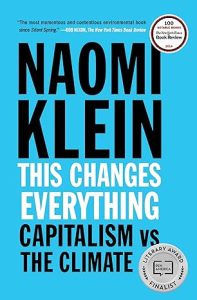
Klein argues that climate change is not just another issue-it’s the defining conflict between our economic system and ecological survival. She examines how free-market policies and corporate interests have obstructed environmental progress, proposing systemic change as the only viable path forward. Rich with investigative journalism, global case studies, and political analysis, Klein spotlights grassroots movements resisting fossil fuel dependency. She contends that bold action, including renewable investment and structural reform, is both necessary and beneficial to communities. This book challenges readers to embrace transformative change, framing climate solutions as an opportunity for social justice and economic equality worldwide.
4. Under a White Sky: The Nature of the Future by Elizabeth Kolbert
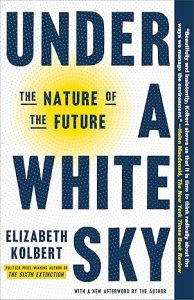
A companion to The Sixth Extinction, Kolbert explores humanity’s attempts to control nature to fix past damage. From engineered coral reefs to carbon-removal technologies, she investigates whether we can innovate our way out of environmental catastrophe-or simply create new problems. Through vivid reporting and encounters with scientists, Kolbert examines the blurred line between intervention and overreach. The narrative blends cautionary tales with glimpses of ingenuity, offering no easy answers. Instead, it invites reflection on the paradox of our age: having irrevocably altered the planet, we now face the necessity-and risks-of engineering its future for survival.
5. The Climate Book by Greta Thunberg
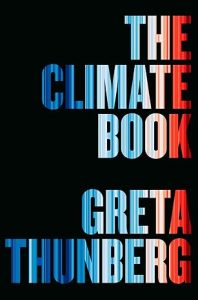
Compiled by Thunberg, this anthology brings together over 100 experts-from scientists to Indigenous leaders-to present the most comprehensive overview of climate science and solutions to date. Organized into thematic sections, it covers the physics of warming, societal impacts, and practical strategies for systemic change. Interspersed with Thunberg’s candid essays, the book blends urgency with empowerment. It dismantles misinformation, underscores inequities, and emphasizes collective responsibility. This volume is both a reference and a rallying cry, equipping readers with knowledge and inspiration to take action, no matter their background or geography, in the fight against the climate emergency.
6. Our House Is on Fire: Scenes of a Family and a Planet in Crisis by Malena & Greta Thunberg, Svante & Beata Ernman
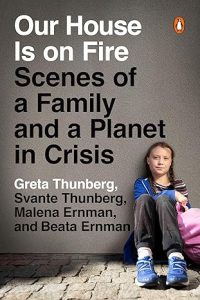
Part memoir, part manifesto, this intimate narrative chronicles the Thunberg family’s awakening to the climate crisis. Told collectively, it intertwines Greta’s journey from silent child to global activist with her family’s struggles, including mental health challenges. Their personal transformation mirrors the moral urgency faced by society-recognizing a crisis and deciding to act decisively. The book offers human context to the climate debate, showing how individual commitment can ripple outward into global impact. It’s both a family portrait and a testament to the power of empathy, resilience, and truth-telling in tackling environmental collapse before it becomes irreversible.
7. The New Climate War by Michael E. Mann
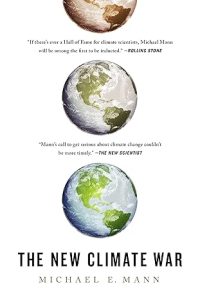
Renowned climatologist Mann exposes tactics used by powerful interests to delay action-shifting blame to individuals, promoting false solutions, and sowing doubt. He traces the evolution of climate denial into “deflection,” where responsibility is privatized while systemic change stalls. With clarity and optimism, Mann outlines genuine solutions, from policy reforms to technological innovation, emphasizing that collective action remains the most potent weapon. Drawing lessons from past environmental campaigns, he dismantles misinformation and empowers readers to resist manufactured helplessness. This is both a defense of climate science and a call to reclaim the narrative from those intent on preserving the status quo.
8. All We Can Save Edited by Ayana Elizabeth Johnson & Katharine K. Wilkinson
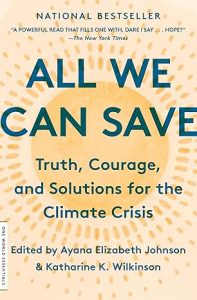
This anthology showcases diverse women’s voices-scientists, activists, policymakers-sharing essays, poetry, and policy visions. It emphasizes climate leadership as both an intellectual and emotional pursuit, rooted in care and collaboration. The editors frame climate work as a shared cultural project, drawing attention to community-based solutions and intersectional environmentalism. The book’s mosaic approach offers hope alongside realism, highlighting how varied perspectives can fuel collective action. By centering women’s contributions, it broadens the traditional climate discourse, reminding readers that inclusive leadership is vital for building resilient, equitable societies in the face of ecological disruption and rapid global change.
9. Losing Earth: A Recent History by Nathaniel Rich
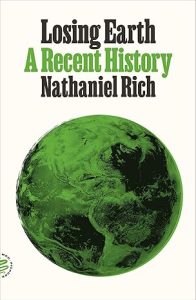
Rich revisits the decade (1979–1989) when scientists, politicians, and industry leaders knew about climate change-and almost acted. Based on extensive reporting, it reads like political drama, tracing missed opportunities and the personalities who shaped early discourse. The narrative captures the sense of urgency that existed long before the public grasped the crisis, revealing how close we came to unprecedented global cooperation. This history is both sobering and galvanizing: understanding past inaction can illuminate pathways to progress today. Rich’s storytelling transforms policy meetings and memos into moral turning points in humanity’s struggle with ecological responsibility.
10. Falter: Has the Human Game Begun to Play Itself Out? by Bill McKibben
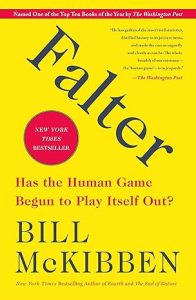
McKibben, one of the earliest climate advocates, offers a sweeping meditation on the dangers facing civilization-from climate change to unchecked technology. He argues that reliance on fossil fuels and unbridled technological growth threaten the very fabric of human life. Blending science, morality, and spirituality, McKibben challenges readers to consider what truly sustains a meaningful future. He warns against complacency but also celebrates ongoing renewable and grassroots efforts. Ultimately, Falter is a plea to steer human ingenuity toward preservation rather than destruction, ensuring the “human game” remains worth playing for generations to come.
Conclusion: Top 10 Books About Climate Change
These Top 10 Books About Climate Change spanning New York Times bestsellers, Amazon bestsellers, and influential classics-paint a comprehensive picture of the climate crisis. They combine science, policy, history, personal narrative, and moral reflection, offering readers both sobering truths and practical solutions. Whether you seek an unflinching look at possible futures, an anthology of global voices, or a rallying cry for systemic transformation, this list offers the tools to understand, engage with, and act on the most pressing challenge of our era. Your next chapter in climate awareness and advocacy starts with the stories and strategies found in these remarkable works.

